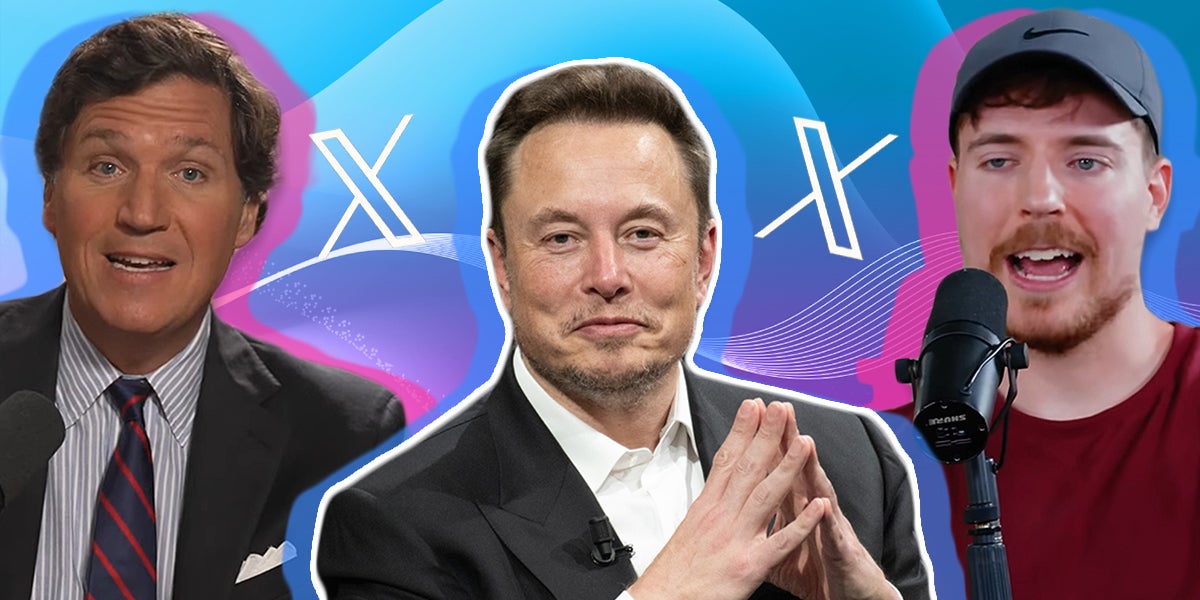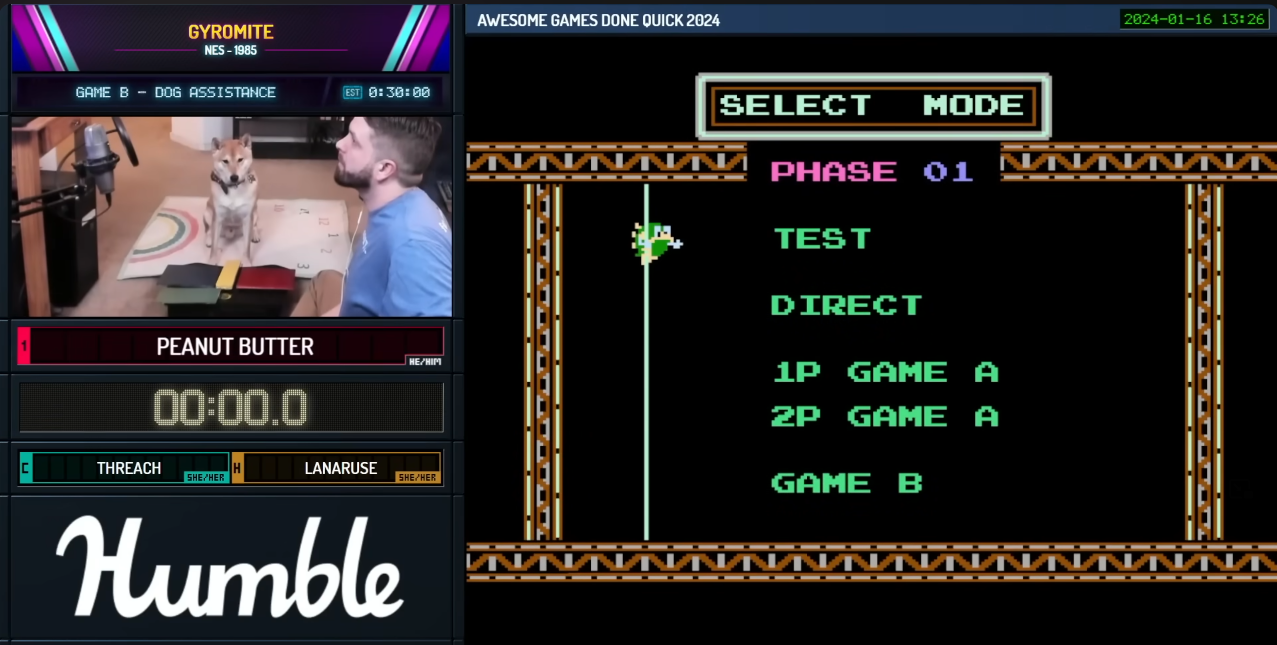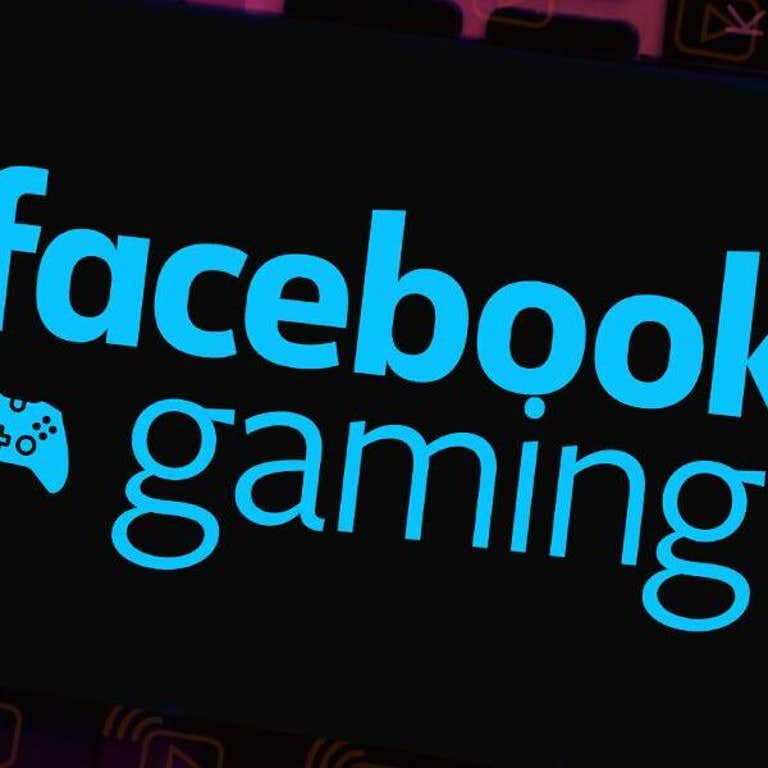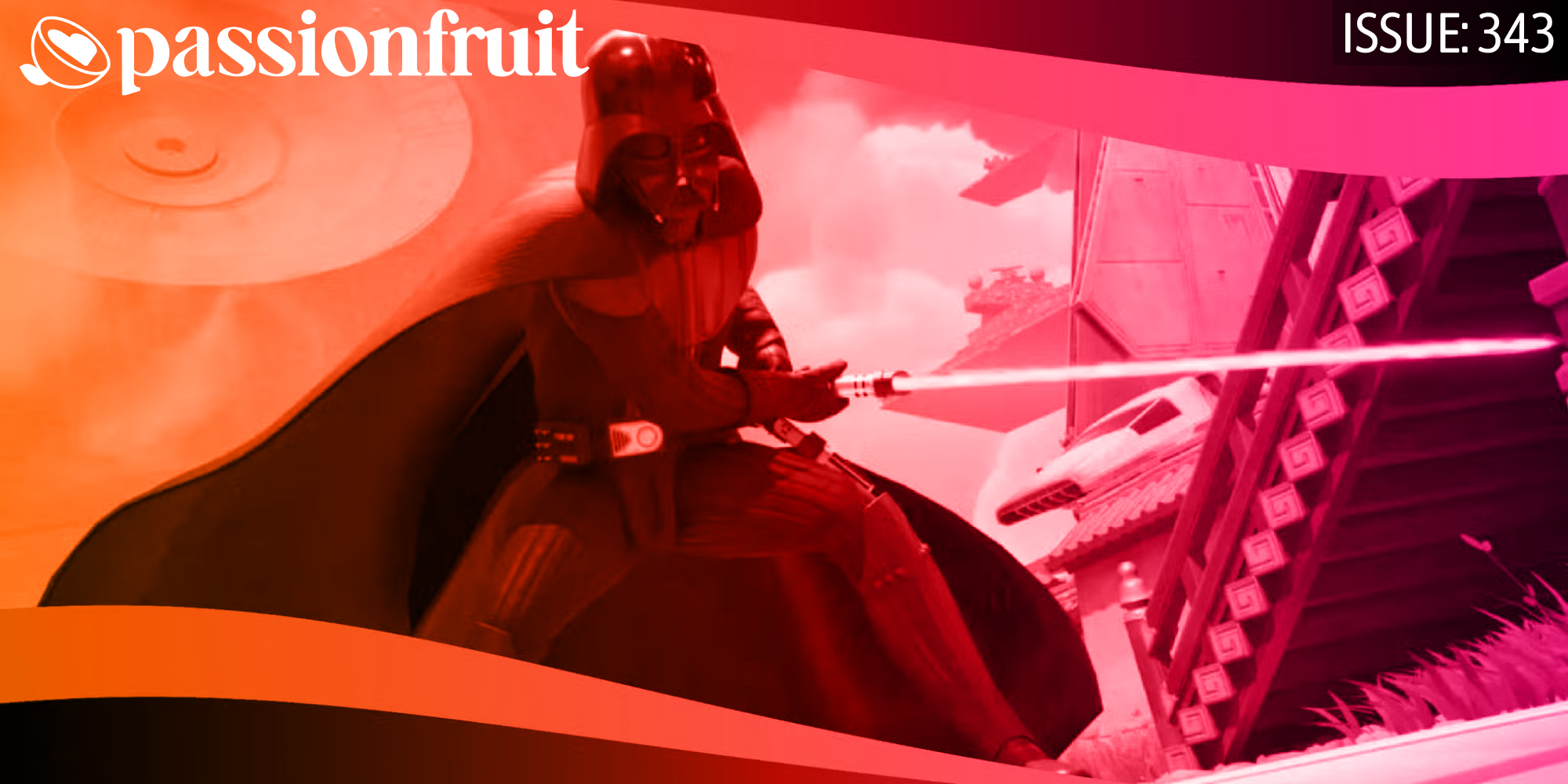CREATOR NEWSLETTER
Issue #204 | January 18, 2024
Let the record show, I love a good conference. And this month, creators and brands have been flocking to Las Vegas, first for the Consumer Electronics Show (CES) last week, then for Creator Economy Live this past week, followed by the AVN Awards at the end of the month. I’ve been here since last Tuesday and want to die; I do not recommend anyone spends more than 72 hours in this town if they don’t absolutely have to. I will not be staying for AVN this year.
These conferences have been staples of the digital media industry for over a decade. CES spent the last 20 years morphing from a geeky trade show to a media spectacle, primarily because tech journalists realized they could show up at these shows and get a sneak peek at what the big tech companies were planning on launching for the year. Once the journalists caught wind of it, the advertising, PR, and marketing teams took over, carefully designing each company’s presence with enormous booths on the show floor, lavish dinners for invited guests and clients, and all the debauchery that comes with inviting sales and marketing people to Vegas on a company card. More unsavory details can be found on my personal blog if you’re that curious.
CES is considered “business to business” or B2B, meaning the only attendees are supposed to be corporate executives who have the authority to negotiate on behalf of their tech company. Journalists always got a pass because their presence was a net positive for the consumer electronics companies, the fawning coverage helped boost sales and public excitement for a thinner screen or a higher frame rate. Because most of the companies there are “Consumer” Electronics companies, their business model is considered “business to consumer” or B2C, so the press played an integral role in generating that public consumer interest.
Except! Now most media consumption isn’t happening in traditional press outlets or networks, it’s happening on social media. Brands and companies are wise to this, which is why TikTok threw two separate parties for their advertising clients at CES this year. Creators flooded the showroom floor to give their followers a live look at the event, they were invited to act as spokespeople, and some were even there showing off their own consumer products.
This blurring of the consumer/business line impacts creators in both positive and negative ways. On the plus side, creators are getting access that was once gatekept by tech journalists, and there’s good money to be made by partnering with brands that align with your own audience’s niche interests. To wit, I met Sophie Lightning this week at Creator Economy Live, she was Nerf’s first Chief TikTok Officer. She got that job simply because her love of posting Nerf fan videos caught their marketing team’s attention, and she was hired right out of college as an “in-house” creator.
On the flip side, while some creators are able to navigate the confusion of marketing org charts, most aren’t aware that there is likely a person (or team of people) employed at their favorite brand whose only job is to find and work with creators. The best way to meet those people is to come to conferences like CES and Creator Economy Live, but self-funding a trip to Vegas is expensive and can be a literal gamble. You can always try to find them on LinkedIn and slide on in, but it’s so much better to get facetime with these people.
And that was primarily the theme of Creator Economy Live. This particular conference is mostly geared towards brands and marketers who are trying to figure out how to build an “influencer strategy” for their company, so most of the panels centered around things like “building content calendars” and “measuring success.” There was also a good amount of chatter about AI, the next frontier of “user” generated content, aka UGC, that these brands will spend gobs of money on. (Has anyone coined AIGC yet? Calling dibs on it.)
But before the brands stoop to cutting creators out of the picture entirely, they are desperate to find you and work with you (assuming your audience and their consumer profile are aligned). Companies like #paid were on-site to help make this process simpler, and it’s no surprise that the two executives I met from that company were former Condé Nast salespeople (from the same team that I used to throw CES craps with 10 years ago). They realized that selling Wired ads to an advertiser is pretty similar to selling a creator’s TikTok presence, so they’re using their understanding of the media industry to make it simpler for their roster of creators to get #paid. Sign up for creators is free, but I can’t find their commission rates listed on their website, a level of transparency we can only hope for from most creator marketplaces.
Furthermore, these solutions are not end to end. #paid can get you some visibility with the brands you could potentially partner with, but unlike Condé Nast’s creators/journalists, the creators who work with #paid don’t receive healthcare, time off, or a stable paycheck. That’s the trade off. Brands don’t have to pay publishers or agencies for bloated advertising production anymore, now they can pay the creators a much lower rate, one that doesn’t include padding for benefits, executive compensation, or sales commissions.
In Vegas, you can’t beat the casino. Their entire business model is predicated on you not understanding how hard they’ve made it for you to win. Like, did you know that — traditionally — if you got a blackjack while playing blackjack, the casino would pay you $3 for every $2 you bet? So for a $10 bet, you’d get $15 in winnings (so the payout is $25).
In the last few years, however, casinos have subtly changed the rules so that blackjack pays $6 for every $5 you bet, so instead of your $10 blackjack being worth a $25 payout, your new win is just $22. That minor difference in payout has huge implications for your success rate at the game, and every automatic card shuffler or increased number of decks means your odds of winning get smaller, despite you never really fully grasping how each of those variables impacts your earnings. Just this week, I saw multiple roulette wheels with a triple zero space — I won’t explain that one in depth but for my gamblers out there, stay away from the triple zero wheels, they’re statistical disasters.
But unlike Vegas, creators can actually win in the content casino we find ourselves in. It requires a media savvy that few are willing or able to teach (besides us, of course), a serious commitment to your audience and your craft, and a willingness to collectively say no when the terms of a deal aren’t right.
The platforms are the house, and they will write all the rules that make it easy for them to win while we keep spinning the algorithmic wheel of fortune, but the advertisers are the ones placing the bets on our content. Building real, face-to-face relationships with the people behind those brands is how you can short circuit the platform’s algorithmic power over your revenue share. And perhaps once brands get to know you, they’ll be less likely to want to replace your UGC with AIGC.
No promises, though. Brands will always want cheap content and bonafide attention from a partner they trust, and if CES showed us anything, AI is going to be mighty good at making things cheap and engaging. Your advantage here lies in building that trust, so when the brands go to place their bets, they’ll hopefully keep betting on you.
– James Del, Publisher
NOTED BY LON HARRIS
MrBeast Started Posting Videos to Twitter/X. Could the Platform Be a Viable Home for Creators?
It turns out, advertising revenue share deals require… advertisements.
By Lon Harris, Passionfruit Contributor

IN THE BIZ
- Twitch announced the dates and locations of TwitchCon for this year. TwitchCon Europe will be in Rotterdam June 29-30, and TwitchCon North America will be in San Diego Sept. 20-22.
- Twitch also rolled out a feature that shows “Partner Plus” goals (the target metrics you must meet to access the platform’s special revenue sharing program), which will be shown alongside other metric goals for followers and subscriptions.
- Adobe announced some new AI-audio editing features aimed at easing tedious audio tasks, like improving low quality dialogue. The beta program is available to test now, and the features will be rolled out to all Premiere Pro users this month.
- Instagram debuted a feature that allows users to stop a Story from uploading mid-process, in order to give users a way to catch errors before a post is published. In addition, Instagram appears to be adding a feature that lets users change a “Close Friends” story to a public one after it’s already been posted.
- OnlyFans creator and streamer Amouranth advised women not to start an OnlyFans unless they are an “established creator,” saying she thinks it’s “not good for you.”
- According to new data analysis of over 2 million social media posts, YouTube Shorts was a major disruptor in influencer marketing this past year, paired with a 700% boost in investment in short-form content.
- For you movie lovers in the audience, the British Academy Film Awards (BAFTA) nominations were released today, with a few surprising upsets.
CULTURE
Skibidi Toliet Is Under Investigation By Russian Authorities
The popular YouTube series may be under threat.
By Charlotte Colombo, Passionfruit Contributor
PLATFORMS
Facebook Gaming Lifts Simulcasting Restrictions
‘Huge news for the 8 people watching Facebook Gaming right now.’
By Charlotte Colombo, Passionfruit Contributor
WHAT WE’RE WATCHING
- This furry seemingly rigged a brain electrode machine to track his VTuber fursona’s ear movements… truly amazing.
- Reactor Alanda Parker had a blast watching the 2023 film “Bottoms.”
- All the latest takes on the “orange peel theory,” including this heartwarming post.
- The Reel Rejects went back and caught another Adam Sandler classic that they had missed, 1996’s “Happy Gilmore.”
TWITCH MADE ME DO IT
On Jan. 16, a very good boy named Peanut Butter became the first pup to ever speedrun a video game at a charity event, Awesome Games Done Quick. While Peanut Butter didn’t set any groundbreaking records, he’s still a winner in our books.


Copyright © 2024 Passionfruit, All rights reserved.
You are receiving this email because you signed up to get the latest tips, tricks,
and trends in the creator economy from Passionfruit.
Have an idea for our next big story or want to get featured? Email us at tips@passionfru.it
Don’t want to hear from us anymore?
Click here to unsubscribe
To view in your browser click here





